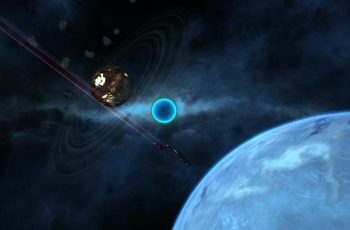Recently, Chinese astronomers have reportedly discovered nearly conclusive evidence of extraterrestrial life, and the Chinese government is on the brink of making an official statement. At the same time, rival astronomers in the United States, who made a similar discovery earlier, were allegedly prohibited from publishing their findings. Now, to prevent China from being the first to announce the discovery, U.S. astronomers might finally be allowed to release their results.

For years, NASA and the Pentagon have hinted at the imminent disclosure of alien life, but skepticism has grown due to the repetitive nature of these claims. However, in October 2024, the DailyMail published a report from filmmaker Simon Holland, who claimed that Earth-based telescopes had found evidence of intelligent alien life, with an announcement possibly coming within a month.
Holland, who has worked with BBC, National Geographic, and NASA, explained that two groups of astronomers are competing to publish the first confirmed evidence of extraterrestrial civilization. He stated, “We’ve discovered non-human extraterrestrial intelligence in our galaxy, and people don’t know about it.”
The information came from a contact at Zuckerberg’s Breakthrough Listen program, a privately funded initiative to search for extraterrestrial life. According to Holland, this group found evidence of a non-human technological signature several years ago using the Parkes Telescope in Australia. He noted that Oxford astronomers working on the project may announce the discovery soon, but the Chinese, with their FAST telescope, could surpass them.
The signal in question, BLC-1, was detected in April 2019 at 982 MHz and originates from the region around Proxima Centauri, a star about 4.2 light-years away. The signal is narrow-band, which is unlike the broad hum of natural elements typically detected by radio telescopes. Holland explained that this signal was akin to frequencies used for radio transmissions on Earth and appeared to come from a planet orbiting Proxima Centauri, showing a Doppler shift—indicating it came from an object in motion.
Holland revealed that astronomers are rushing to gather more data to confirm the signal’s origin. He also mentioned that the Chinese may attempt to publish their findings first, as they know the coordinates of BLC-1 and are in competition with the Oxford team. However, Holland emphasized that this signal is unlike any known natural phenomenon.
While scientists are cautious about making premature announcements, both Breakthrough Listen and the Oxford team are working to confirm their findings before publishing. The Oxford group confirmed they were analyzing the signal but did not disclose its likely source.
Proxima Centauri, the closest star to Earth, has been under observation for over a century, and astronomers have now detected something significant—possibly a powerful transmitter akin to an early missile warning system radar. This discovery challenges the long-held belief that we are alone in the universe.

As UFO sightings increase, such as those over New Jersey, the perception of extraterrestrial life is shifting. Whether this shift is happening naturally or influenced by intelligent beings is unclear, but astronauts are now poised to reveal this groundbreaking information to the public. It’s possible that the announcement will be delayed until January 2025, so the newly elected president can take the honor of disclosing the sensational news.


